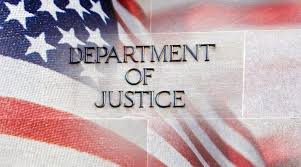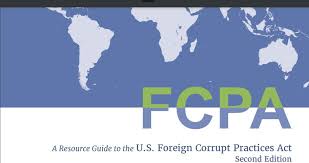Lessons Learned from the Telefónica FCPA Settlement (Part III of III)

The Justice Department’s record of FCPA enforcement in 2024 has been disappointing. With all of the hoopla and pronouncements surrounding the global war against corruption, DOJ suggested that enforcement in 2023 and 2024 would be robust. Instead, 2024 was a year of fizzles, fits and starts, and ultimately a slow year of FCPA enforcement.
The future under the Trump Administration will be interesting. Based on the first Trump four years, FCPA enforcement could return to a moderate level. However, such a result will depend on the specific leaders appointed to lead the Justice Department and the role that White House policy may influence DOJ enforcement efforts.
Telefónica’s FCPA settlement includes several important reminders and lessons for anti-corruption compliance professionals.
Currency Market Regulations, if regulated as in Venezuela, creates significant incentives for bribery. DOJ has prosecuted companies and individuals for bribery payments used to gain access to dollars when government limits the conversion of local currencies for US Dollars. Many of these bribery schemes were executed to take advantage of the black market disparity in prices for US dollars, which reflected the real price for US dollars in the market.
Given the nature of this market condition, Telefónica was well aware of the risks that its subsidiaries ability to manage its telecommunications system would require access to US dollars and bribery would be needed to secure such funds. Telefónica’s risk assessment and monitoring of its bribery risks ignored this significant risk and situation in Venezuela. By its deliberate ignorance, Telefónica acknowledged in its own way that it would permit its subsidiary to engage in bribery.
Bribery financing schemes require tried and true methods to steal money from corporate coffers. Telefónica’s scheme employed a basic system — using suppliers to overcharge for work that was never provided and making payments well above the prevailing market rate.

Executing these financial schemes requires layers of paperwork and use of third-party intermediaries and shell companies. There is nothing new and unique here — these are common indicators of bribery. Basic questions as to the precise roles of the intermediary and shell companies, and why were they needed, would have uncovered the illicit scheme.
Compliance professionals and business staff need to reacquaint themselves as to the importance of basic due diligence processes and inquiries —
- What are the qualifications and experience of a proposed third-party in the specific transaction or contract?
- What role will the third play in securing the proposed contract?
- How did the third-party come to the attention of the business in connection with the specific transaction or the proposed contract?
Aside from these basic qualifications, compliance professionals and business staff need to reaffirm adherence to financial controls. Two basic issues — pricing and invoice review — have to be followed so that potential corrupt schemes can be prevented.

In the Telefónica case, telecom equipment was purchased at exorbitant prices as a means to finance bribery payments to Venezuelan government officials. Those payments were then funneled through intermediary and shell companies using sham consulting agreements where payments were authorized in exchange for no actual consulting services.
These are basic financial controls. We do not know how these basic procedures were ignored — such dysfunction involved the complicity of not just the primary actors and panners of the bribery scheme but eventually included basic functions such as contracting, accounts payable and other financial actors who either ginored the red flags or raised the issue but were given inadequate response — we do not know exactly what occurred here but this misconduct takes more than one or two actors to execute in the real world.















